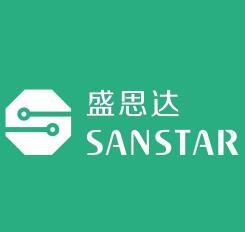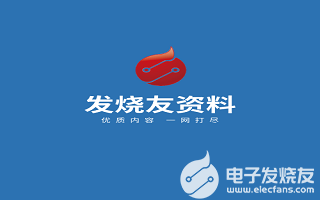商业往事
每月分享几则有趣的商业小故事(中英双语),邀请大家和我们一起透过历史故事,看存储商业。

无法取代的书评态度
本文总计786字
预计阅读3分钟
(英文文章在中文文章之后)
土井英司是日本著名的书评家。当土井英司在日本亚马逊工作时,他为《我如何从失败到销售成功》一书写了一篇书评。这是一本1964年初版的旧书。在他发表书评之前,这本书在日本亚马逊每天卖不到一本。然而,经过他的评论,这本书在日本亚马逊的销售量每天可以超过十本。
这件事之后,亚马逊网页上显示了;这本书订单增加了十倍。但是计算机并没有说明为什么这本书销量突然变好了。这件事让土井英司理解到;计算机通常只能给出结果,而不能给出原因。因此,土井英司认为,书评是一件不会轻易被计算机所取代的工作。
在日本亚马逊发现 土井英司的书评多么有影响力的之后,,他们要求他写更多书评。因此,土井英司开始挑选选书籍,阅读这些书,分析这些书,并且每天把这些内容发布给在日本亚马逊的读者。
他在日本亚马逊工作时,每周要写七篇书评。这意味着他每天要读一本书。他喜欢这项工作,因为他也可以从读书中学到一些东西。然而后来日本亚马逊改变使用出版社提所供的书评,土井英司还是丢了这项工作。因此,2004年土井英司在日本亚马逊失去工作后,他就开始了自己的书评生意。
他开始在网络上发表关于管理和商业类书籍的书评,而且他照样的几乎每天都发表一篇书评。就一个书评者来说,这是一个相当不错的商业模式,因为就购买管理书籍的读者来说,购书、读书的一种投资。一般来说;他们读书不是为了娱乐,而要藉此提高工作绩效。这些读者需要有人给他们一些关于他们感兴趣的书籍的信息,并且介绍这些书的重要观点,以帮助他们决定是否该购买这些书。
尽管出版社也会付钱请他来写书评,但土井英司把读他书评的读者当成为他的主要客户。这是他的书评受到读者欢迎的原因,因为读者知道,他们可以信任他的评论。土井英司的生意模式之所以能够活下来,是因为出版社仍然需要有人来介绍他们的书,而 土井英司在他的书评中为读者提供了宝贵的观点。即使是出版社付费让他写评论,他仍然诚实的提供他意见和总结。
How to Get Something Valuable from Books
Eiji Doi is a famous Japanese book critic. When Eiji Doi worked for Amazon Japan, he wrote an introduction for the book How I Raised Myself from Failure to Success in Selling. This is an old book that was originally published in 1964. Before his review, Amazon Japan was selling less than one copy per day. However, after his review, Amazon Japan started selling over ten books per day.
Subsequently, the Amazon webpage for this book showed that orders had increased tenfold, but it didn’t say why. This helped Doi to know that a computer usually only gives the result, not the root cause. So, this led him to think that the job of a book reviewer won’t easily be replaced by a computer.
After Amazon Japan discovered how influential Doi’s reviews were, it asked him to do more. So, Doi would select books, read them, analyze them and write reviews for readers on Amazon Japan. He wrote seven book reviews every week when he worked for Amazon Japan, which means that he read a book a day. He loved this work because he also liked to learn new things from reading books. However, Doi ultimately lost his job when Amazon Japan began using book introductions provided by publishing houses. So, in 2004, after losing his job, Doi started his own book review business.
In particular, he published online reviews for management and business books, and he did so almost every day. This was a pretty good business model for a book reviewer because management books are an investment for the readers who buy them. Generally, they are not reading for pleasure but rather to improve their job performance. Such readers need someone to give them general information about books that they are interested in and also to introduce the important points that such books make in order to help them decide whether to buy these books.
Doi treated the readers of his reviews as his primary customers, even though publishing houses often paid for his book reviews. This made him popular with readers because they knew that they could trust his reviews. Doi was able to survive because the publishing houses still needed someone to introduce their books, and Doi provided valuable viewpoints in his book reviews for his readers. But even when writing paid reviews, Doi still provided his honest opinions and summaries.
Doi regarded himself as a reader to select books for his customers. He believes that reading management books is an investment in oneself, not leisure reading. So, when he reviewed a book, he cared about what benefits the book could provide for him and other readers, what important points that readers needed to pay attention to, and what lessons readers could learn. When he read a book to review, he studied it. And when he reviewed it, he not only introduced it for his readers but also taught or summarized some of its main concepts.
So, he selected books from authors with valuable experience that his readers could benefit from. And he helped readers to gloss over the concepts that they likely already understood so that they could focus on the concepts that were likely new to them. He advised readers not to be distracted by beautiful, interesting or funny passages, but rather to focus on those concepts that can inspire them and take them to a higher level.
I have to agree with Doi’s approach. As managers, when we read a business book, our goal is not to have an emotional experience, or to admire the author or the person the author is writing about. Our goal is–or should be–to learn something from the book that can help us in our careers or give us better performance. When we read a book, we spend (or invest) a lot of valuable time, so we should get something valuable in return.
原文标题:商业往事丨第84话:无法取代的书评态度
文章出处:【微信公众号:江波龙电子】欢迎添加关注!文章转载请注明出处。
-
江波龙
+关注
关注
4文章
271浏览量
27017
原文标题:商业往事丨第84话:无法取代的书评态度
文章出处:【微信号:江波龙电子,微信公众号:江波龙电子】欢迎添加关注!文章转载请注明出处。
发布评论请先 登录
相关推荐
DAC39J84最大数据速率指的是数字信号的输入上限吗?超过1.25GSPS的数字输入就无法处理啦?
SN65DSI84 dsi clk必须在888MHZ以上才能正常发送mipi,否则无法正常显示,怎么解决?
DAC34SH84无法产生正确的信号是哪里出了问题?
MHMF082L84N-操作手册 - PANATERM Ver6.0 松下

MHMF082L84N-MINAS A6N系列 介绍 松下

MHMF082L84N-MINAS A6 系列 Block动作事例 松下

用CDCE62005搭配DAC34H84,寄存器无法配置怎么解决?
展会回顾 | 第84届教育装备展圆满落幕,持续赋能卡、码、脸、掌全方位智能支付模式

MHMF022L84N-操作手册 - PANATERM Ver6.0 松下

MHMF022L84N-网络式伺服A6N 设置例 松下

MHMF021L84N-操作手册 - PANATERM Ver6.0 松下





 商业往事丨第84话:无法取代的书评态度
商业往事丨第84话:无法取代的书评态度












评论